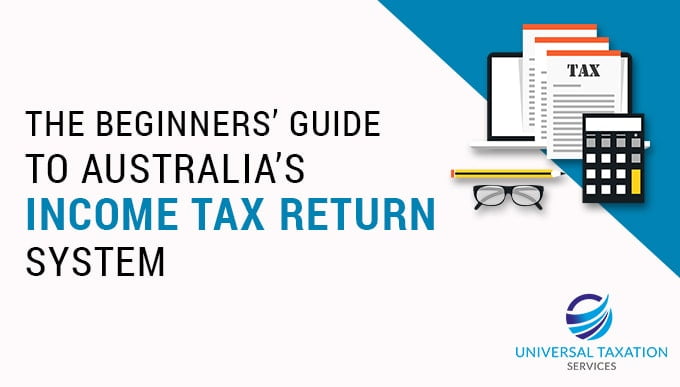How to File Your Tax Return and Maximize Your Refund This Year
Exploring the Advantages of Declaring an Income Tax Return: Optimize Your Tax Refund This Year
Submitting a Tax return is often regarded as a challenging job, yet it plays an important role in boosting your financial standing. By carefully reporting earnings and leveraging readily available deductions and credit histories, people can tap right into the potential for considerable tax obligation refunds.
Value of Filing a Tax Return
Submitting an income tax return is a substantial responsibility for organizations and individuals alike, as it offers both compliance and monetary monitoring objectives. Complying with tax obligation laws is crucial, as stopping working to submit can lead to substantial penalties, interest fees, and possible lawful repercussions. By submitting an income tax return, companies and people show their commitment to meeting their public obligations and contribute to the functioning of public services.
Additionally, filing an income tax return provides an opportunity for taxpayers to assess their financial scenario. It allows them to track income, expenditures, and overall monetary health, which can educate future budgeting and investment decisions. For several, income tax return are a portal to prospective refunds, as overpayment of taxes throughout the year can be redeemed, offering a much-needed economic increase.
Furthermore, the income tax return process can promote access to various financial services and products. Lenders often require tax obligation returns when identifying creditworthiness for mortgages or finances, making it necessary for people and services seeking monetary help. To conclude, submitting a Tax return is not simply a regulatory commitment; it is a considerable action in keeping economic stability and revealing potential advantages.
Comprehending Tax Reductions
Tax deductions are frequently neglected yet play an essential function in minimizing gross income and taking full advantage of potential refunds. Comprehending the numerous kinds of tax obligation reductions readily available can substantially impact your total tax obligation responsibility. Reductions can be classified right into 2 main types: conventional reductions and itemized reductions.
The criterion deduction is a set buck amount that taxpayers can subtract from their revenue, varying based on filing status. For many individuals, especially those without substantial itemizable costs, taking the conventional reduction is beneficial. On the various other hand, itemized reductions allow taxpayers to listing eligible expenses, such as mortgage passion, clinical costs, and philanthropic contributions, possibly generating a better deduction than the basic alternative.
Acquainting yourself with these nuances can help you strategically intend your funds and enhance your tax return. By understanding and leveraging tax obligation reductions successfully, taxpayers can reduce their taxed earnings and enhance their total tax refund.

Discovering Tax Obligation Credit Histories
Optimizing your tax obligation savings includes understanding the various types of tax obligation debts offered to you. Tax credit scores directly lower your tax responsibility dollar for buck, making them much more useful than deductions, which just lower your gross income.
There are two key categories of tax obligation credit histories: nonrefundable great site and refundable. Nonrefundable credit histories can reduce your tax responsibility to absolutely no but will certainly not result in a reimbursement if the credit history exceeds your tax obligation owed. Refundable credit histories, on the various other hand, can generate a refund also if you have no tax obligation liability, making them especially helpful for lower-income taxpayers.
Typical tax obligation credit scores consist of the Earned Revenue Tax Obligation Credit Report (EITC), which sustains reduced to moderate-income functioning people and family members, and the Child Tax Credit report, which provides financial relief for taxpayers with reliant kids. Education-related credit scores, such as the American Chance Credit Score and the Life Time Understanding Credit rating, help offset the costs of college.
Typical Errors to Prevent
Steering the intricacies of tax obligation returns can lead to several typical risks that taxpayers must understand. One significant mistake is failing to report all income sources. Also important link tiny amounts from sideline or freelance work need to be consisted of, as the internal revenue service obtains duplicates of all revenue declarations.
An additional constant mistake entails overlooking reductions or credit scores for which one is qualified. Taxpayers must thoroughly look into prospective reductions, such as for trainee fundings or medical expenditures, to avoid leaving cash on the table.
Furthermore, errors in personal information, such as Social Safety numbers or filing standing, can delay handling and refunds. It is vital to verify all details prior to entry to ensure precision.
Filing late or neglecting to submit altogether can likewise result in fines and missed possibilities for refunds. Taxpayers must recognize due dates and plan as necessary.
Lastly, lots of people overlook to maintain detailed documents of expenditures and supporting papers. Organized documents is fundamental for confirming claims and promoting any type of future audits. By staying clear of these common errors, taxpayers can simplify their filing procedure and boost their prospective reimbursements.
Tips for Optimizing Your Refund

Next, consider adding to retired life accounts, such as an individual retirement account. Payments made prior to the tax obligation due date can be deducted, possibly raising your reimbursement. In addition, if you are freelance, make sure to account for business-related expenses that can lower your taxed earnings.
Another essential strategy is to submit your return digitally. E-filing not only speeds up the handling time but also minimizes mistakes that can accompany Discover More paper submissions. Validate that you select the correct declaring status; this can substantially affect your tax price and eligibility for particular credit scores.
Lastly, maintain careful documents throughout the year. Organizing invoices and monetary records can simplify the declaring process and assist you recognize prospective deductions that you may or else miss. By taking these actions, you place yourself to receive the maximum reimbursement feasible.
Conclusion

By carefully reporting earnings and leveraging offered deductions and debts, individuals can touch into the capacity for significant tax obligation refunds. For lots of, tax returns are an entrance to potential reimbursements, as overpayment of tax obligations throughout the year can be reclaimed, offering a much-needed economic increase.
Comprehending the different types of tax obligation deductions available can substantially influence your general tax obligation responsibility. Online tax return Australia. By leveraging and understanding tax obligation deductions efficiently, taxpayers can reduce their taxed income and boost their general tax reimbursement
